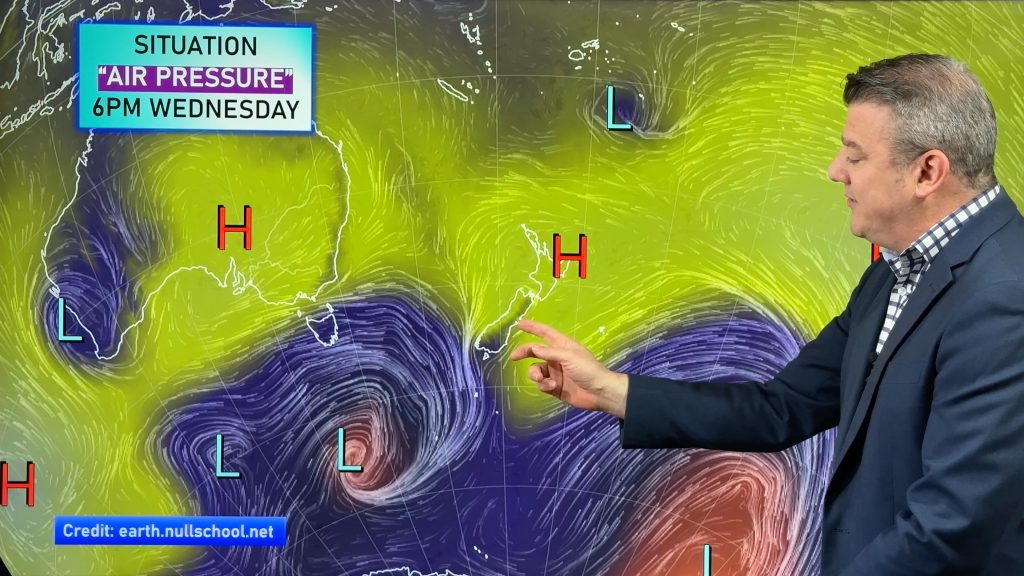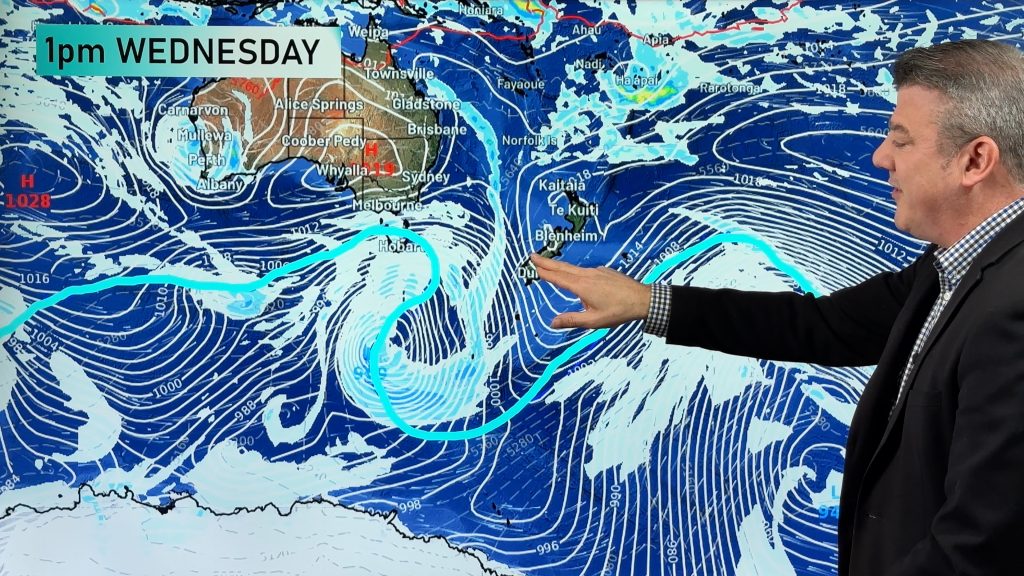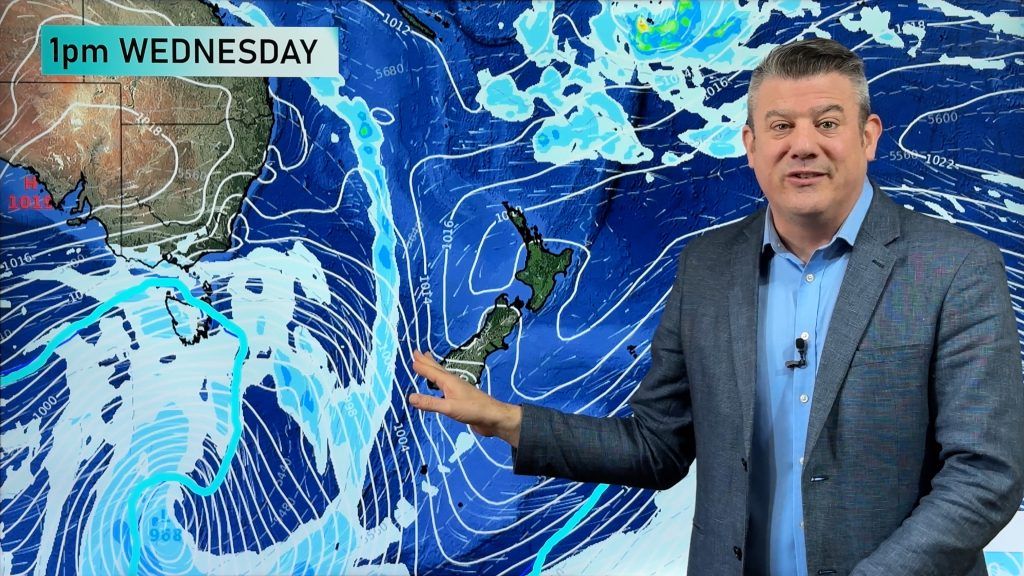
> From the WeatherWatch archives
When does alerting the public to a potential weather risk spill over into alarming people unnecessarily? That’s the question I’ve been battling with over the past two weeks as we went from first predicting a tropical storm to then having a slow, sluggish and very large tropical low hover over the upper North Island for several days.
We wait before making predictions on a big scale but we see no harm in discussing potential future weather risks. In the internet age the public can already see what online weather models are predicting up to two weeks in advance, and they then come to us wanting our take on it.
So we write news stories about it. people read the headline only – “Tropical cyclone may take aim at NZ”. Then five days later they email us and say “so much for that cyclone”.
So we asked our readers: “Do you like how we discuss future weather risks, or would you rather we only commented on weather events we have high confidence in?”
Overwhelmingly, the public said they wanted to know about systems well in advance, regardless of our confidence levels, so long as we explained the risks, potential and the full picture.
“As a dairy farmer, your advanced weather is fantastic,” wrote Taranaki’s Jackie Whitehead.
“It gives us plenty of time to work out what paddocks will be suitable when bad weather is predicted. As for this past week, the cows are now in paddocks sheltered from the wind.”
David Harris of Tauranga agreed: “Forecasting is more an art than a science, although I appreciate that there is also a lot of science involved.
“I have lived and studied the weather in the Western Bay of Plenty for 50-plus years and generally you are getting it bang on. The law of probability says that we will all get it wrong occasionally.”
I believe we shouldn’t be scared to talk about potential severe weather, even if we’re saying there could be a cyclone next week but we won’t have a concrete prediction for five days.
Some of you may know of the famous stuff-up from the 1980s, when BBC forecaster Michael Fish told evening TV viewers: “Earlier on today, a woman rang the BBC and said she heard there was a hurricane on the way. Well, if you’re watching, don’t worry, there isn’t.”
That night, the Great Storm of 1987 arrived, claiming 18 lives.
The more advanced information we give the public, the more the public can make up their minds on weather risks.
It’s a tricky area – one in which we’re always trying to be better. So, do you think forecasters should stick to just talking about the next few days or is general discussion about future potential storms also a valuable service for New Zealanders?
– Philip Duncan writes a weekly column for the Herald on Sunday
Comments
Before you add a new comment, take note this story was published on 9 Apr 2012.





Add new comment
Robert DeLong on 9/04/2012 7:16pm
I am both appreciative and thankfdul for your foreword looking predictions. I had a good home weather station until I dropped it in a move. Because of the incalculable number of “micro” weather sites the constant changing forecast from Metservice is of no use however your reports give us a basis to work from.
When people, forecasters in this matter, choose to report what they personally consider important or necessary denies us of all the facts. Keep up the good job providing all the info possible. We’re big people and can make of it what we want or need..
Reply
westcoast on 9/04/2012 8:50am
re Michael Fish, I actually met the guy when I was in the UK. He was taken out of context and mis quoted…he was answering a question from a USA caller about a hurricane approaching the USA….and so the mi quote and taken out of context is still being peddled to this day…
Reply
Melissa on 9/04/2012 7:53am
Please keep discussing future weather risks, even if it only makes a few people aware of how weather can impact our daily lives for better or worse (sounding a bit like wedding vow’s now!)
Advanced information, even to maybe get one more person to do an extra check on the weather before they set out on a boating or tramping trip could be the difference between a great day out or the next search and rescue operation.
Surely people have enough resources available to them nowdays to keep up to date with how the weather could impact their day/week, especially with our kiwi outdoor lifestyle.
It got people talking about the weather risk and I personally think that is a good thing.
And sure things don’t always eventuate but I’d much rather be prepared than not.
Reply
Guest on 9/04/2012 7:35am
I believe the wording was ” Tropical Cyclone sets its sights on New Zealand” or something similar. ECMWF didn’t show the circulation heading towards NZ at any stage. Rather passing to our northeast. I think ECMWF is the model people put most of their faith in including you guys so you said. Thats where people got confused. Well it confused me.
Reply
Geoff on 9/04/2012 7:01am
For me, as a cyclist, I appreciate the heads up, It means that I dont take for granted what I think the weather might be doing, and keep a closer eye on it.
Rather than go “damn, no storm”, I kept an eye on things, planned alternatives, and everything worked out sweet.
So.. keep telling us there might be something bad this way approaching, please.
Reply
Derek on 9/04/2012 5:59am
I agree that you should inform the public, forewarned is better than being caught out. If it does not happen all well & good.
keep it the way you are as it is great.
Reply
Duncan on 9/04/2012 5:34am
Yes, i agree we do need to know whats coming up, the metservice is very straight laced where Weatherwatch is more down to earth and and more easier to understand in laymans terms than the metservice but in saying that i love both.
Three cheers for every weather website!!
Reply